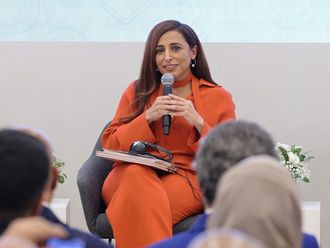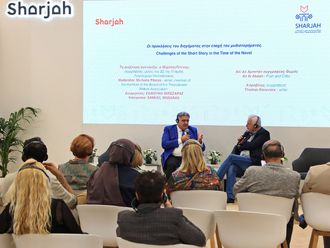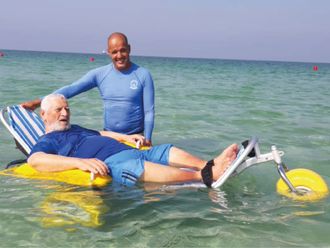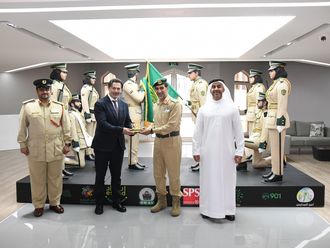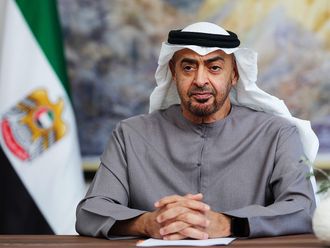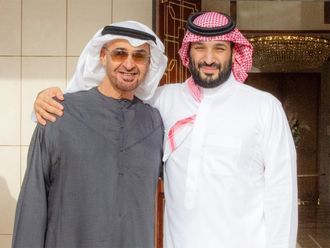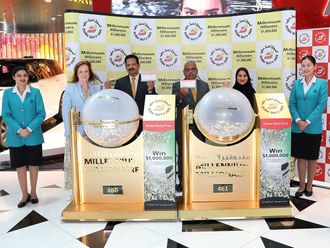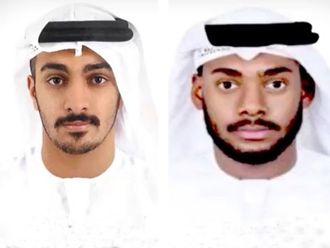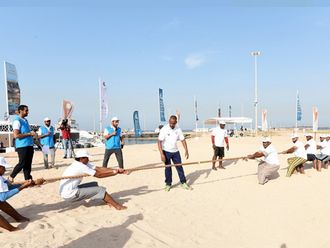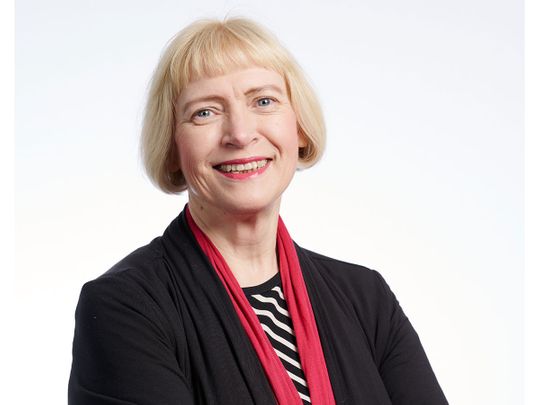
Abu Dhabi: The UAE’s focus on innovation within its education system is paving the way for careers of the future, a top Finnish education expert has said.
Vocational and educational training is no longer restricted to technical careers, which is why all nations must work to develop this educational pathway, added Mervi Jansson, chief executive officer at Omnia Education Partnerships, a Finnish consulting and training solutions provider that has worked extensively in the Gulf region.
“This new focus on innovation and entrepreneurship [throughout] education is a great initiative, as are the apprenticeship models [available in the UAE],” Jansson said.
“I would also suggest benchmarking the Centre of Excellence model in the EU to raise the profile of technical and vocational and education and training in the region,” she added.
To enable this, the MoE is looking at curriculum redesign to instill future skills among pupils, the development of clear links between education and the labour market, and the creation of lifelong education and future certificates. There are also plans to provide flexibility in the number of years of study based on the individual needs of each student, a system that is widely applied in the Finnish education system.
Benefits of a vocational education
Unlike university education, vocational education typically prepares people to work in skilled crafts or technical fields. In recent years, the field has also developed to allow for continuous upskilling. Providing students with a vocational education is therefore seen as a means to reduce unemployment and encourage entrepreneurship.
The UAE government encourages vocational and technical learning, with public schools allowing students to graduate with a technical secondary diploma. These students can then go on to pursue further diplomas, or upskill to a university degree.
Authorities have also been working to change perceptions about technical and vocational degrees, highlighting that today’s workforce needs to constantly reskill itself to keep up with changing technology.
UAE numbers
According to the National Qualifications Centre (NQC), which regulates the vocational and educational sector in the country, and maintains a framework for qualifications, more than 4,300 students have graduated with technical and vocational degrees between 2015 and 2020. There are at least 198 endorsed vocational qualifications offered in the country, including IT multimedia, meteorology, and nuclear power plant technology, and these are offered by 24 education and training providers.
Abu Dhabi also hosted the WorldSkills 2017 competition, the largest international contest in vocational skills at which 1,300 participants from 60 countries competed against one another in fields like nursing, fashion design, construction technology, and transportation. The emirate is also driving vocational education for Emirati People of Determination, with centres like the Al Karamah Training Institute empowering students with skills required for employment and independent living.
Finland’s model
Finland, which is known to have one of the top education systems globally, also actively encourages vocational education and training.
“Vocational education and training (VET) should not only be seen as leading to blue collar industrial jobs, although these jobs are also changing rapidly due to digitalisation. In fact, VET in Finland is an important part of professional careers and also job creation, such as in the service sector. In addition, 50 per cent of Finnish companies are founded by professionals with a VET background. VET can also be designed to offer lifelong learning and upskilling, which is constantly needed in a growing number of professions,” Jansson said.
“I believe VET has a lot of potential also for the UAE, but it needs to be [further] developed in terms of adding more occupations, and the development of possibilities for upskilling,” she added.
In Finland, about 40 to 50 per cent of ninth graders opt for VET for their upper secondary studies.
“This is a a good proportion to aim for. After graduating, about 30 per cent continue to a bachelor’s degree,” Jansson said.
There is also a good proportion of adults pursuing vocational education and training in the Northern European nation.
Lifelong learning
“Among Finnish VET students, 50 per cent are adults changing careers or upskilling themselves in fields like product design, entrepreneurship and management studies. The VET system offers basic, further and specialist studies, which is a path for lifelong learning that is also valued by those with an academic degree,” Jansson explained.
Nursing, information and computer technology, media, sports, and beauty are the most popular VET tracks. Some of these offer prospects for employment, which others offer interest career and entrepreneurship tracks.
“In Finland, perceptions about VET have changed gradually, and it has been regarded as a great professional option for over 15 years. We have worked hard for this to happen. Modern learning environments, the latest technology, versatile learning options, guidance counselling, and open events for youth and parents and figure head people with a VET background have all contributed to what VET is today. In fact, we have had two education ministers with a VET degree,” Jansson said.
Further development
Looking at the Gulf’s VET ecosystem, the expert said the sector is still “quite theoretical without a role in the innovation ecosystem.”
“A more flexible VET system is needed with clear links, curriculum development, innovation projects, and work-based learning to convince that VET is a part of the future and offers paths to promising careers,” she recommended.
Upcoming reforms
In the UAE, vocational education and training is set to be at the heart of reform within the system, as announced by Ministry of Education (MoE) officials during a presentation at the Expo 2020 Dubai in February this year. In fact, among the educational goals for the next 50 years of UAE’s development are plans to transform schools into incubators for entrepreneurship, and to focus on applied education and technological skills.
To enable this, the MoE is looking at curriculum redesign to instill future skills among pupils, the development of clear links between education and the labour market, and the creation of lifelong education and future certificates. There are also plans to provide flexibility in the number of years of study based on the individual needs of each student, a system that is widely applied in the Finnish education system.


